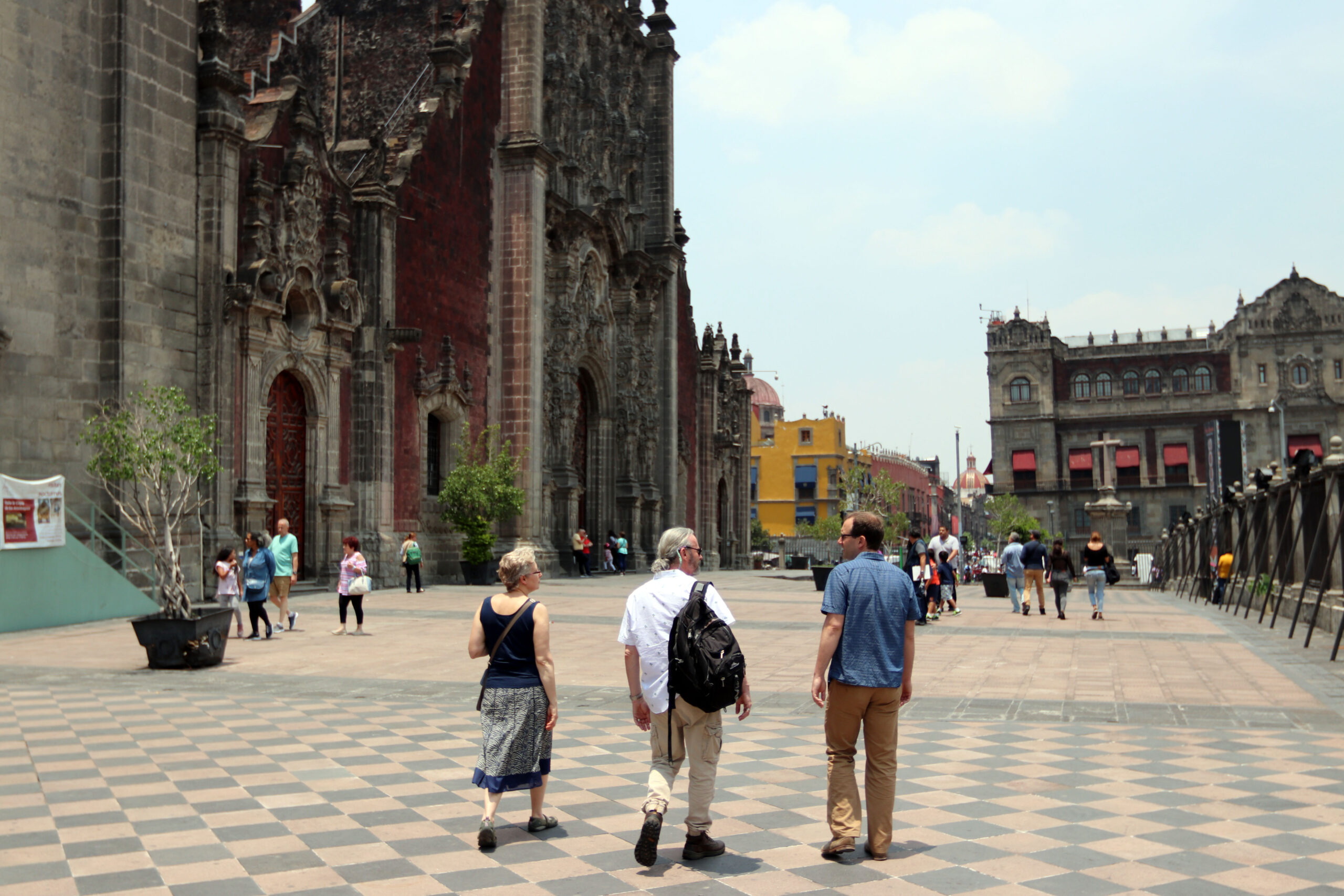Introducing Global Learning Collaboratives

The new Department of Sustainability and Social Justice integrates experiential learning throughout the curriculum through Global Learning Collaboratives, which include studio courses, international internships, community-engaged research, and long-term projects across the world.
“We are intentional in our development of Global Learning Collaboratives. They are created in partnership with alumni, organizations, and groups that share our commitment to collaboration and co-creation for a more just, sustainable, and joyful world,” says Laurie Ross, director of the new department.
Examples of Global Learning Collaboratives include:
Bangladesh
Under the guidance of Professor Cynthia Caron, students will intern with Clark alumni at Dhaka-based AYAT Education, a purpose-driven social enterprise that provides services and programs to increase women’s access to economic development opportunities, improve healthcare services for elders, and enhance wellbeing of garment workers. Through these internships, students enhance their skills in monitoring and evaluation, grant writing, gender analysis, and communications.
Caribbean
Professor Nigel Brissett conducts research on the impact of contemporary educational policies, programs and projects in Caribbean countries. His research is especially attentive to issues of educational access and equity for marginalized groups in the era of rapid neo-liberal globalization. He teaches a class on Education and Youth in a Global Context that integrates practical field-based experience with classroom-based learning.
Central Mexico
Environmental Science and Policy Professor Timothy Downs is leading a three-year, National Science Foundation-funded project that melds GIS mapping, system dynamics modeling, extended reality (XR) technology, and new educational experiences to help policymakers and the public collectively understand how much is at stake under climate change.
The project involves nine faculty — including professors Morgan Ruelle and Yelena Ogneva-Himmelberger — and 19 graduate students from the Department of Social Justice and Sustainability, Graduate School of Geography, and Becker School of Design and Technology, working with their peers at the National Autonomous University of Mexico (UNAM).
Ethiopia
Funded by the Rockefeller Foundation’s Periodic Table of Food Initiative, Professor Morgan Ruelle is involved with a multi-year collaborative research project on traditional grain mixtures in Ethiopia. Clark students will work closely with faculty and graduate students from the New York Botanical Gardens, Cornell University, City University of New York, Addis Ababa University, Wollo University, the Ethiopian Public Health Institute, and Ethiopian farmers.
Greece
Students will head to Thessaloniki this June for an intensive, three-week experience that uses the lens of food to investigate migrant integration over time. The course is co-led by Professor Anita Fábos and Leora Kahn, a research scholar and coordinator of the Integration and Belonging Hub at Clark. Kahn also is executive director of PROOF: Media for Social Justice, a nonprofit that uses visual storytelling for social change.
Puerto Rico
After two hurricanes devastated the island in 2017, professors Cynthia Caron and Ramón Borges-Méndez, a native of Puerto Rico, saw reconstruction of the coffee industry there as a case study in resilience, giving women a larger role in the supply chain. Borges-Méndez also worked with Professor Yelena Ogneva-Himmelberger to create student research projects in GIS and environmental modeling courses, using the case of Puerto Rico after Hurricane Maria.
Faculty will continue their work in Puerto Rico, creating new research and field work opportunities for students, including those pursuing the M.S. degree in the department’s new Sustainable Food Systems Program. Borges- Méndez will bring students in his Community Development and Planning Studio to Puerto Rico this spring for a week of field research.
Worcester
The lack of affordable housing, the shortage of culturally responsive mental health professionals, and the opioid crisis converge in ways that make it difficult to address chronic homelessness in Worcester. Through a partnership with the Family Health Center of Worcester, students in Professor Laurie Ross’ Community Development and Planning Practicum will gather information from people who are experiencing homelessness and those who work most closely with this population to inform the Family Health Center’s decision-making about service delivery systems and models for individuals and families who are unhoused.
Students also may take classes with Professor Anita Fábos, director of the Integration and Belonging Hub, who researches issues of forced migration. Students may intern with three Worcester agencies — Ascentria Care Alliance, the Refugee and Immigrant Assistance Center and Catholic Charities — dedicated to providing services and programs for migrants who have resettled in Worcester.


